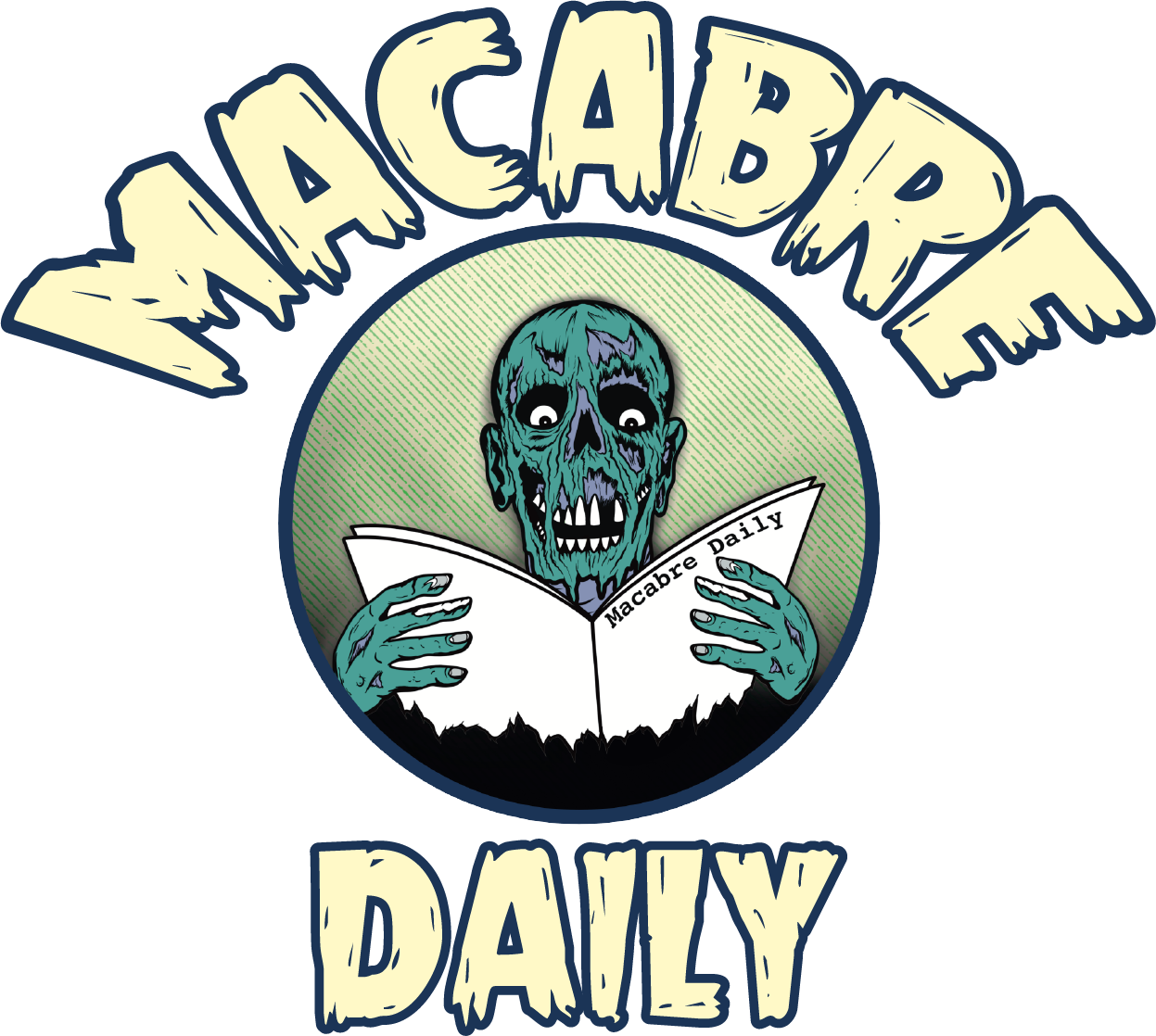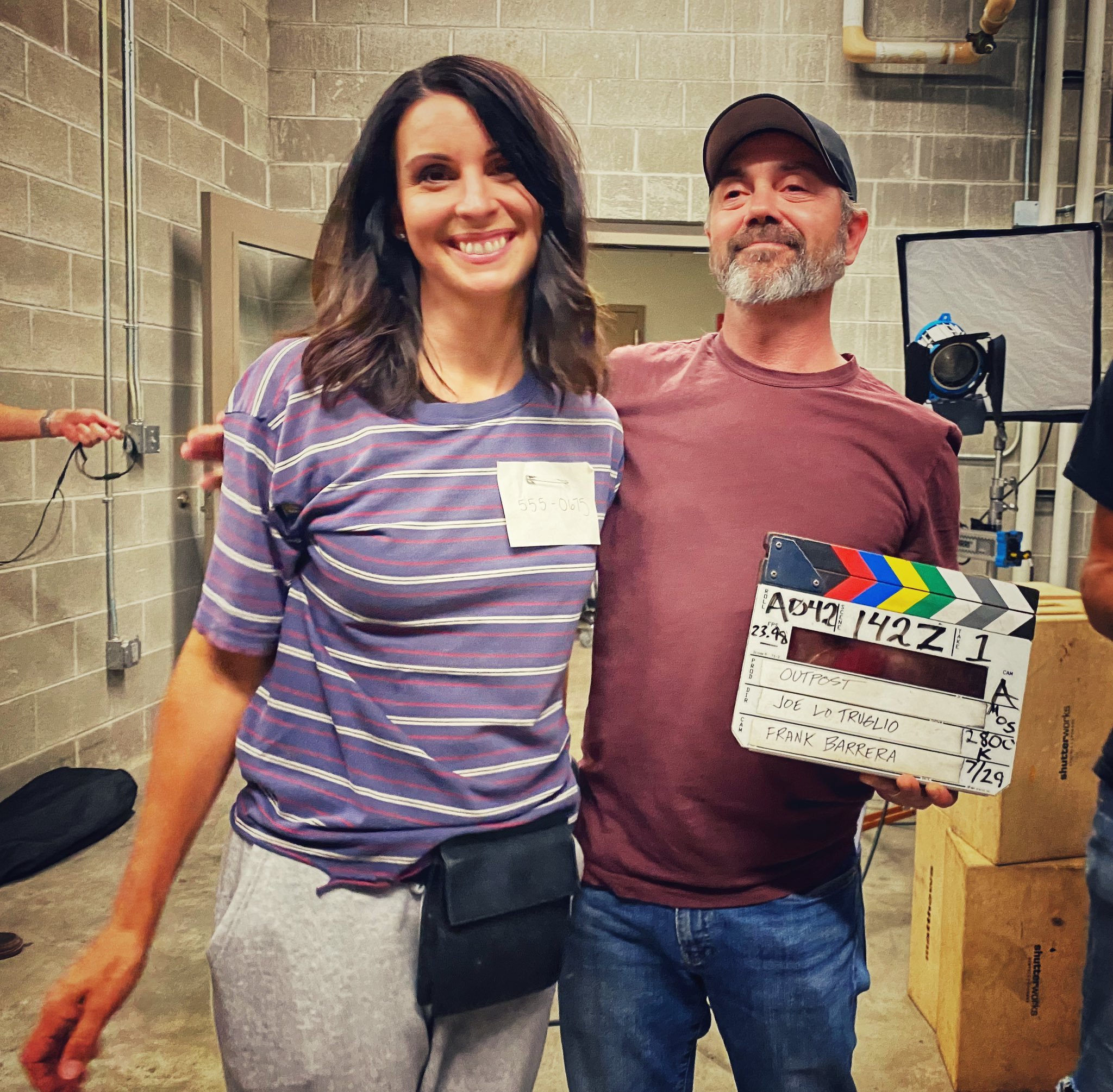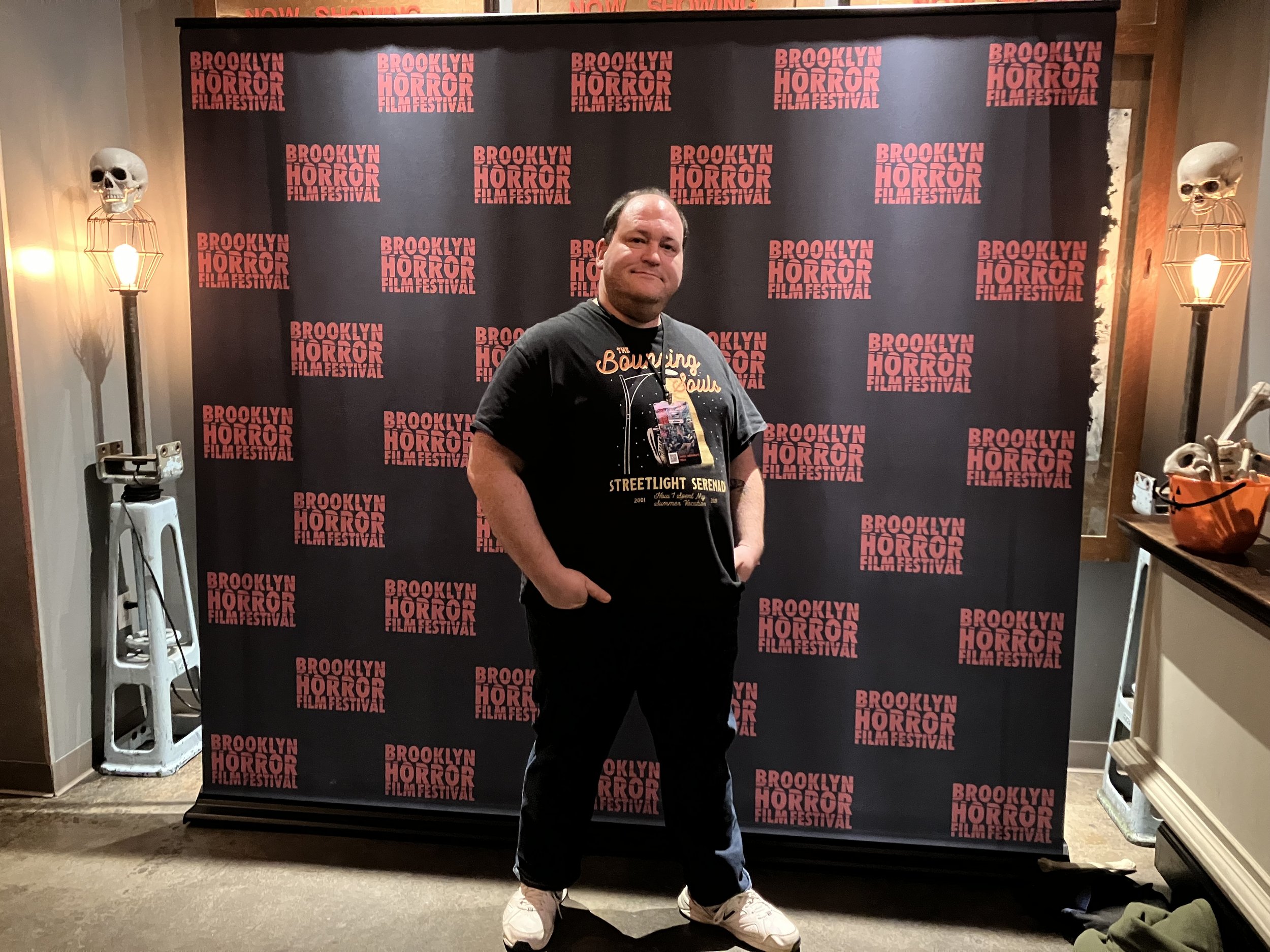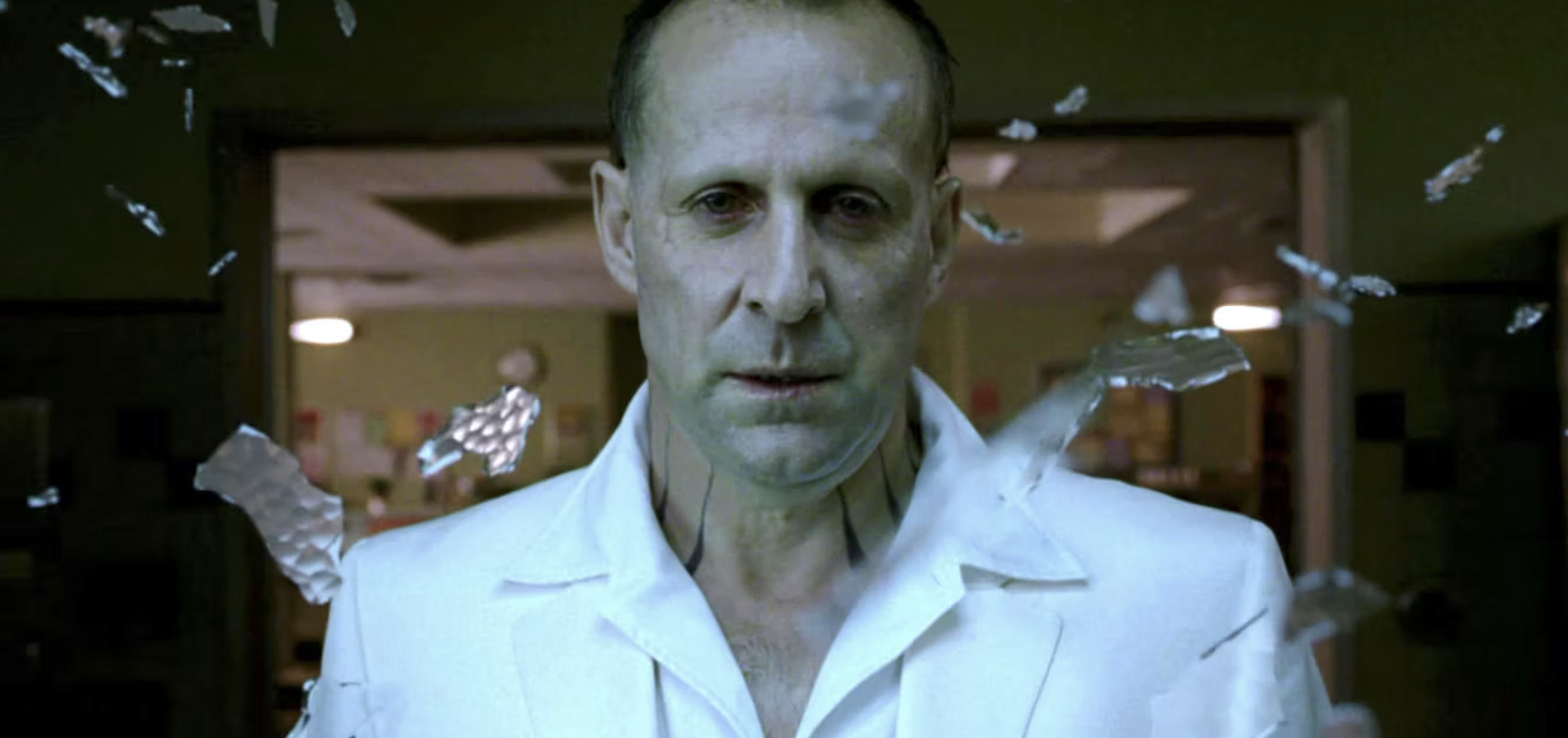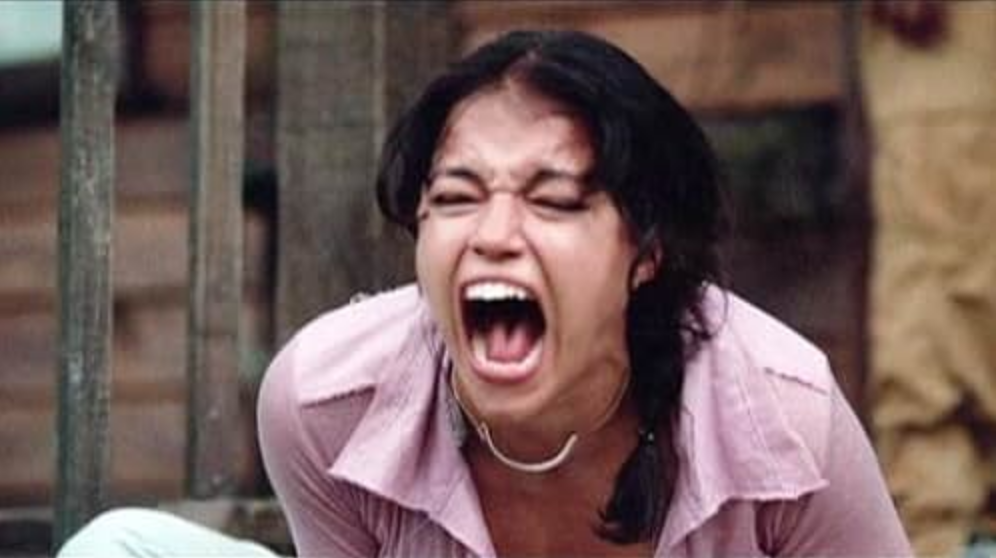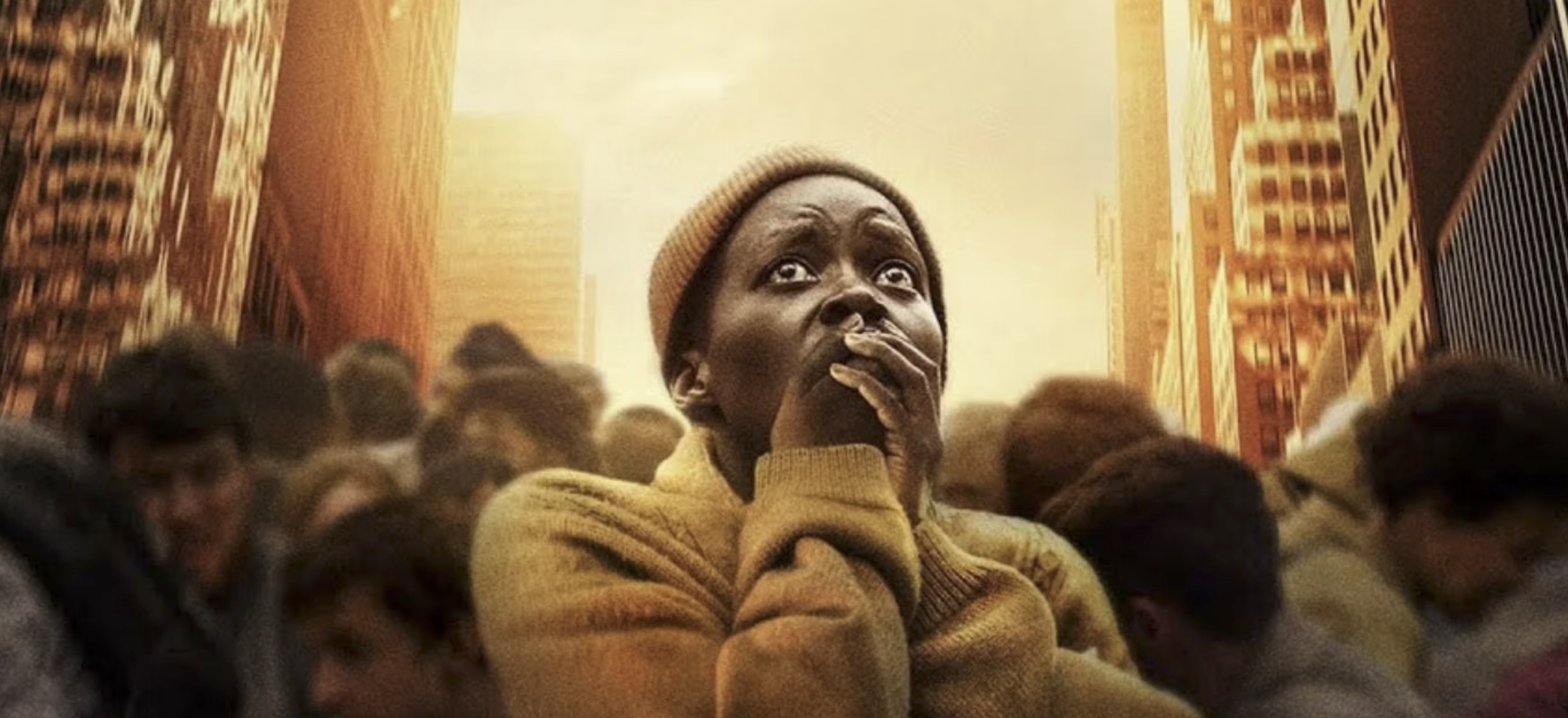Director Joe Lo Truglio Talks His Debut Feature 'OUTPOST' with Macabre Daily!
Over the past few years, some of the most recognized horror directors have emerged from the comedy world. Audiences couldn’t have imagined established comedic actors like Jordan Peele and John Krasinski were capable of bringing us horror films, let alone major hits like “Get Out” and “A Quiet Place.” Now Joe Lo Truglio (“The State,” “Brooklyn Nine-Nine,” “Wet Hot American Summer”) has written and directed Outpost, a psychological horror film starring his wife, and fellow comedian Beth Dover. I was lucky enough to talk to Lo Truglio about the film, wanting to make a horror film since he was 13, and the perils of shooting an indie movie on a mountain. We discuss some minor spoilers towards the end, but we’ll keep it vague. You don’t want this one ruined for you.
I could talk to you all day about just your career in comedy, but we’re here to talk about horror.
We can certainly talk about it a little bit here, too.
Well how did working in comedy and sketch inform your first film in a new genre?
My career in comedy really instilled a value of collaboration. To surround yourself with talented people, but are also good people, who are also better than you. I wanted to make sure that I surrounded myself with crew and producers who were very good at what they did, and provided a sense of safety, excitement and enthusiasm on the set. That was the common denominator I found in all those comedy projects. People were happy to be there because they were with people that were nice and also super funny, and also knew that it all couldn't be on themselves. That you needed to come together to create something that was really good.
That’s certainly the main thing on a production level. In terms of the genre, I feel both comedy and horror work in an area of immediate reaction. The joke is funny, or it’s not. The scare works or it doesn't.
Dover (left) and Lo Truglio (right) during production. Image taken from Twitter.
You’ve been a lifelong fan of horror, so I have to ask, why choose the subgenre of psychological horror?
Great question. I'm a fan of psychological horror films, specifically ones that deal with madness or a descent…like “The Descent” for example [Laughs]. A movie that really preys on the fear of “Am I, am I going mad? Am I seeing what's, what's really there?” The story of “Outpost” was a bit unique in terms of how it came about because I kind of worked backwards from my resources. I knew I was going to be producing this movie, and paying for it along with some other equity investors. I knew if I'm making a small indie film with my wife, Beth Dover, who’s an incredible actor, it'll be in our lives for a while.
So what's a story with a female protagonist? How much production value can I get for a small amount of money? If we were on a mountain or someplace with a view, that would help. What story could take place on a mountain? And of course, I'm thinking about all of this without really understanding the logistics and difficulty of making a movie on top of a mountain [Laughs]. But I didn't want to think that far ahead. I wanted to think of a small movie with a small cast. I was fortunate to be close friends with a lot of incredible actors who I thought of for their roles. It was more of a practical approach. I went to my love for these horror movies that were about going crazy and worked backwards from there.
Speaking of the incredible Beth Dover, she plays “Kate,” the main character. What was it like to collaborate with her on a project that was uncharted for both of you?
She was enormously collaborative, but also was very deferential by her choice. We had 2 table reads and probably 13 drafts. I broke the story in Spring of 2018 and we shot in summer of 2021, but we had been working on the script throughout. I asked for her opinion and she gave me some notes. But full disclosure, she and I think very differently in terms of writing. We've actually tried to write things together and we've clashed. She would tell you the same thing. We worked so well as actors, we've acted in things together. We both have such strong specific voices that it was tough for us to collaborate as writers.
So she was aware of that and said if something seems off on the day we're shooting, I’ll let you know, like, hey, can we switch this up? But right now, the script looks really great. She was really relating to the motivations of the characters as they were in the script. The door was always open, but she'd kind of hover on the doorstep for most of it just to kind of let me run with these ideas. I'll just say that this movie can't work if you don’t buy the performance and transformation of the lead actor. Beth really turned it on like I always knew she could. She's such a great actor. She's always been able to do both comedy and drama and I was excited to have people recognize that when they see the movie.
You mentioned in the Fangoria that you shot for 16 days, with 40 people, 6,300 feet in the air, and the actual outpost has a 5-person weight limit. Even reading that gave me hives.
Yeah, we had 2 or 3 people on the landing underneath, so we had about 8. The challenges to that were enormous, but I shot the movie with Frank Barrera, who I've known since I was 17. We've been wanting to do a movie for a long time. We decided that if we couldn't actually shoot this movie at an actual tower, there was no reason to make it. We've seen pieces of this movie before, but what I hadn't seen was a movie that actually was shot at one of these towers where people watch it and go “holy shit, they really shot this here!”
When Kate first went up there, my instant reaction was “I don't want to be here.” It's just a box in the sky.
That's great to hear. It’s certainly a reason we took pains to do this. I went location scouting a year before we shot with Frank and Joe Mortimer, one of the producers. When he finally got to the site a few weeks before we started pre-production, he said he was glad he didn't come here before because I wouldn't have allowed us to do this. I just started laughing. I'm like, that's why I went. [Laughs]. I knew anyone in their right mind would be like, no way. But that was gonna be the only thing that I felt separated this independent movie from others. 6,300 feet was scary, but I'm proud to say that we had no injuries. Our incredible stunt coordinator, Mallory Thompson made sure we were safe. The climax of the movie, and I won't spoil anything, has some action that involves fights and stunts, and we had about an hour to shoot it.
Dylan Baker (left) doesn’t have time for Dover’s fire safety tips.
Luckily, we had scouted and choreographed what we had to do before we got up there. We were a well-oiled machine. So that was a very harrowing shoot day. Very exciting. Everyone brought their A game. Everyone was super focused, and we were able to get the scene.
(Minor spoilers follow. We kept it pretty vague, but just in case, be warned. Lightly warned.)
As you mentioned previously, the set-up of “Outpost” might seem familiar, but the way it ramps up into the ending is pretty unique. There’s a character reveal and some unexpected gore which is very jolting. Can you talk about crafting that third act?
I wanted to write a movie where a sympathetic character would change completely without you seeing it coming. I knew I wanted it to be a rollercoaster ride at the end, but it was important for me to be able to connect to a couple of the characters in the first and second act, in order to enable that rollercoaster ride to happen.
We're talking very abstractly, but because the story was so familiar, I knew that I needed to do something at the end that was a little bit different. It was a challenge because what begins as a psychological horror movie turns into a more traditional monster movie. I use that term just in regards to the narrative, and not to judge or degrade the characters [Laughs]. It was important to me to show Kate’s vulnerability because we’re seeing things mostly through her mentally fractured point-of-view. The audience has to be rooting for her, so that when her story ends, you’ll understand completely how she got to that point.
And I didn't want the movie to be promoted by leading with “hey, this is a movie about PTSD and domestic violence,” which it is, but I want those issues to kind of come up naturally with the audience instead of didactically. I welcome the dialogue, but I just want it to stand on its own as a horror movie first.
There’s an exchange towards the end: “Where is she? She's still right there.” It’s genuinely funny and scary at the same time.
[Laughs] When we shot it, I told the actors it was a breather for the audience, so yes, play it for the comedy. I'm so happy it landed because I loved it from the get go.
There’s a moment at the end where you might think the film will end with a hard cut right out of “The Texas Chainsaw Massacre”
That's right.
It feels like if you gave your script to another director, they would've just cut in the middle of the moment and gone for a final scare. But you let the moment end, and the film continues for a few beats while we sit with what we’ve just seen before the film truly ends. Was that always the plan for the ending?
We had several different endings. [The hard cut ending] was one of them, which was suggested by some filmmaker friends of mine. I thought about it, but we've seen that before, like with “Texas Chainsaw Massacre.” And I don't know if that's a complete story. You'll also notice after that moment, the score you’ve been hearing throughout the film drops out. We're just hearing the wind and feeling the loneliness that I wanted the audience to sit with. I wanted to have a few beats to convey that while one character’s life is irrevocably changed, some sense of reality has returned.
We didn’t have enough time on the day we shot the big climax, so we had to do that the next day. Then we used a drone shot at the very end because I wanted to get a real sense of how isolated this place was. I thought I could use the drone for that previous scene, but it couldn’t provide the static look I wanted. We spent 3 hours getting a telehandler to go up the mountain, but we were able to get the shot. So there were a lot of challenging technical aspects, but I knew they would pay off.
Interview edited for length and clarity.
Outpost is now on Digital and VOD.
Stay up to date with “The Dark Side Of Pop Culture” by following MacabreDaily on Instagram, Facebook, and Twitter.
